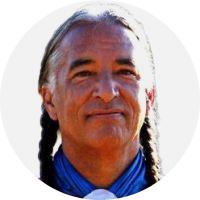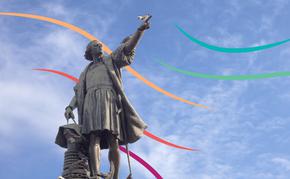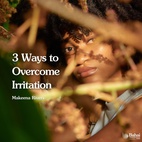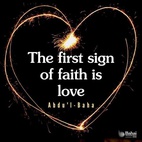The views expressed in our content reflect individual perspectives and do not represent the authoritative views of the Baha'i Faith.
What defines an Indigenous holy messenger? Since very few written teachings have survived, and oral histories are sometimes fragmentary, what criteria do we consider?
For each and every article in this lengthy series, we’ve consulted several scholarly sources — let’s say, an average of at least five scholarly resources per article, and often many more. Throughout the course of this ongoing project, that means looking over hundreds of peer-reviewed papers and monographs – actually, probably closer to 1,000 sources. Of these, we have only cited occasionally and selectively, owing to lack of space.
That said, we’ve also consulted traditional sources – published accounts from Indigenous elders, faith-keepers, and “wisdom men,” wherever accessible.
RELATED: Does Progressive Revelation Include Indigenous Messengers of God?
So let’s take the example of Kuksu. This is what Patricia Locke said about Kuksu, in her recently discovered paper — thanks to Indigenous Baha’i artist Nadema Agard (Winyan Luta/Woman Holy Red) — which apparently Patricia Locke presented, at least in substance, to the 1993 Parliament of the World’s Religions:
Kuksu came from the south to the Wintun people. This Messenger of God then took His divine teachings to the Maidu, the Miwok, Pomo and Wappo, including most of the peoples of the Sacramento Valley, the surrounding mountains and the North central Coast. It is believed that the one named Kuksu taught the people how to live an exemplary life. The ideal person was sober, industrious, loyal in marriage, pure hearted, kind and obedient to the elders and chiefs who conducted the ceremonies.
Patricia Locke cited no source here, but her narrative illustrates a very important principle that you yourself taught me, Kevin, which has become the single, all-important criterion of selection for inclusion in our “Indigenous Messengers of God” series: evidence that each Indigenous messenger taught a moral code.
That important criteria, according to the Baha’i teachings, represents one of the main definitions of a divine messenger. In a talk he gave in Paris, Abdu’l-Baha explained:
All the Manifestations of God and His Prophets have taught the same truths and given the same spiritual law. They all teach the one code of morality. There is no division in the truth. The Sun has sent forth many rays to illumine human intelligence, the light is always the same.
Vinson Brown, in his classic book Voices of Earth and Sky: The Vision Life of the Native Americans, described Kuksu’s teachings:
At the very end of the ceremonies healing of sick people … was done as part of the dance. After this the wise old men or chiefs gave talks about the laws of life and the spirit and how the young people must live to become truly good members of the tribelet. The ideal person was sober, industrious, loyal in marriage, pure-hearted, and obedient to the elders and chiefs who directed activities. It seems reasonably probable that these teachings did come originally from the one named Kuksu.
Since Patricia Locke’s words are nearly identical to Vinson Brown’s, she may have relied on Brown as her principal source for information on Kuksu. On Vinson Brown’s part, he does not cite a specific source, either, although there are a couple of likely sources listed in his book’s respectable bibliography.
But in her presentation Patricia Locke objected to the type of language that Vinson Brown and many others have used:
Popular ethnocentric terminology that will be excluded from this paper when referring to the religious liturgies of the indigenous peoples of this hemisphere include: heathen; heretic; demonic; primitive; culture hero; cult; myth; legend; shaman; idolatry; mumbo jumbo; animism; and lower case first letters and plurals as in “spirits” and “gods” when referring to a people’s Creator or Messenger of the Creator. The use of such terminology rationalizes the European conquest, demeans the self-concept of vulnerable Indian youth and fosters racism.
Kevin, with all due respect to your mother Patricia Locke – and I respect her greatly – does this opinion appear to be overstated as to certain words — such as “culture hero,” “myth” and “legend” — and even the words “shaman” and “animism”?
I mean, if each and every use of these words “rationalizes the European conquest” and “demeans the self-concept of vulnerable Indian youth” and “fosters racism,” then there is a big problem here, and we need to figure out a much better vocabulary to describe the Indigenous messengers of God.
That said, there’s no question that some of the other terms, which are decidedly Christian in origin and nature — such as “heathen,” “heretic,” “demonic,” are offensive not only to Indigenous sensibilities and sensitivities, but to non-indigenous persons, like myself, as well.
Your thoughts, Kevin? Have you yourself used any of these terms in your autobiography, Arising, for instance? Can you offer us a vocabulary of respectful, yet fairly accurate, terms that would hopefully not cause offense to Indigenous peoples — especially since we’re advocating the initiation of local “Indigenous Land and Spiritual Acknowledgments” far and wide today?
A: Chris, one of the problems encountered by researchers on Indigenous topics is that, during the American holocaust, so many Indigenous intellectuals, leaders, and great thinkers were systematically assassinated or otherwise eliminated — so that oftentimes unreliable or less-than-desirable “informants” (as anthropologists and ethnographers used to say) may have been the only source of information for many Indigenous traditions.
RELATED: Going Beyond Indigenous Recognition to Action
That said, there are many notable exceptions to this. To cite a great example, in Frances Densmore’s classic book, Teton Sioux Music, her informants consulted together and chose the most eminent and authoritative elder — Lone Man — to present the source of all beauty, holiness and good in Lakota spiritual culture (which encompasses all of Lakota life), White Buffalo Calf Woman. Her sublime, radiant, enlightening and universal spirit pervades the accurate and excellent Indigenous sources enshrined in Teton Sioux Music, which is a great resource for understanding, appreciating, acknowledging, and respecting the ideal Lakota worldview and way of life. Her simple, yet profound teachings are now so well known and respected that it is safe to say that White Buffalo Calf Woman has enriched our world’s spiritual heritage.
So I would simply recommend that everyone refer to the Indigenous messengers of God with the same level of respect and reverence we naturally give to the best-known founders of Faith – Buddha, Abraham, Moses, Jesus Christ, and Muhammad, for example. After all, as Abdu’l-Baha so clearly said, “The Sun has sent forth many rays to illumine human intelligence, the light is always the same.”

















Comments
Sign in or create an account
Continue with Googleor